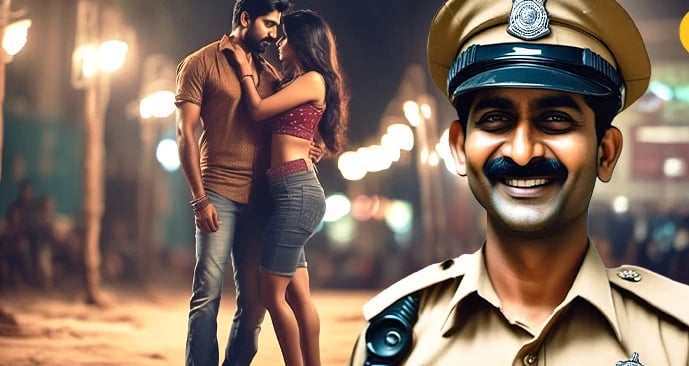



-ALL INFORMATION YOU NEED TO KNOW ABOUT COURT MARRIAGE READ BELOW-
What is the procedure for doing Court Marriage / Registration through online and how long it will take to complete process?
In India Court Marriages are solemnized under the Special Marriage Act, 1954. Irrespective of religion, the caste or creed or even the nationality, in India court marriages taking place in front of a marriage officer hold equal value in the eyes of the law. The procedure of entering into a Registered Court Marriage is as follow:
Step 1: Notice of Intended Marriage Firstly, A notice of intended marriage is prepared and drafted in a specified format to marriage registrar of the district where one of either party has resided for more than 30 days.
Step 2: Publication of the Notice In this step, a copy of the notice is published by the marriage registrar in his office and online dashboard (where it is clearly visible) inviting objections if any. An original copy of the notice is kept for records by the marriage registrar. If the parties do not have a permanent residence in the place where they are getting the marriage registered then the copy of the notice is sent to the registrar of marriage of the town of permanent residence to be put in his office for any objections.
Step 3: Objection to Marriage An objection to the marriage can be raised within 30 days of publishing the notice under Section 7. Any violation of Section 4 of the Special Marriage Act can lead to abortion of the Court Marriage procedure. A registrar will look into the objection if any is raised and see if the objection is fitting or not. In case the objection is considered as just then the court marriage procedure is aborted and if the objection is unjust then the process continues as intended. After the expiration of the notice and no doubts were raised within 30 days of publishing the notice, the marriage can be formalized.
Step 4: Declaration and Registration of Marriage The presence of both the husband and wife, along with three witnesses, is required on the day of Marriage Registration at the Marriage Office. An appointment must be scheduled in advance for the declaration of marriage and marriage registration, which is to be signed by the bride, groom, and a minimum of three witnesses in the presence of the Marriage Officer. The Marriage Officer then countersigns the declarations and marriage certificate.
Step 5: Issuance of Marriage Certificate:After the marriage ceremony, the Marriage Officer issues a marriage certificate. This certificate is proof of the marriage and is legally valid all over the world.
DOCUMENTS REQUIRED FOR REGISTERED COURT MARRIAGE
The Following Original Documents Are Required For Marriage Notice
1. Residence Proof Document,
Aadhar Card / Election Card / Leave & License Registered / Passport / Company Residence Proof / Society Certificate / Electricity Bill / Driving License. (Any One)
Important Note-
(Either of Husband or Wife has to resident at the jurisdiction of marriage office for minimum 30 days)
2. Age Proof Document,
Birth Certificate / School Leaving Certificate / SSC Exam Certificate / Passport/ Bonafide Certificate. (Any One)
3. Conditional Documents (In Case of Re-Marriage),
Court Divorce Decree / Death Certificate. (Any One)
4. Total 3 Witness Document 21 Years Above,
Aadhar Card / Driving License / Pan Card. (Any One)




What is Minimum age requirement to get married legally in India?
The bride should be above 18 years above of age and the groom should be above 21 years above of age.
Can we register our marriage under the Special Marriage Act, 1954 after marriage is done as per personal law?
If the parties marriage is celebrated in other forms. - Any marriage celebrated, whether before or after the commencement of this Act, other than by marriage solemnized under the Special Marriage Act, 1872 may be registered by a Marriage Officer in the territories to which this Act extends if the following conditions are fulfilled, namely,
(a) A ceremony of marriage has been performed between the parties and they have been living together as husband and wife ever since;
(b) Neither party has at the time of registration more than one spouse living;
(c) Neither party is an idiot or lunatic at the time of registration;
(d) The parties have completed the age of twenty-one years at the time of registration
(e) The parties are not within the degrees of prohibited relationship: Provided that in the case of marriage celebrated before the commencement of this Act, this condition shall be subject to any law, custom or usage having the force of law governing each of them which permits of a marriage between the two; and
(f) the parties have been residing together within the district of the Marriage Officer for a
period of not less than thirty days immediately preceding the date on which the application is made to him for registration of the marriage.
Joint Address Proof,
Aadhar Card Address is same of both Husband and Wife / Society Certificate / Registered Leave and License Agreement in both Husband and Wife Both Names / Registered Flat Agreement in Both Names Jointly. (Any One)
Important Note- (Husband and Wife has to resident together at the jurisdiction of marriage office for minimum 30 days)
Marriage Proof, Marriage Invitation Card / Declaration (Any One)


Hindu / Muslim / Christian / Inter-Religion / Any-Religion / NRI / Foreigner Marriage?


Any person irrespective of his/her Religion, Caste, Creed can get married under The Special Marriage Act, 1954 they should only fulfill the conditions under this act as under both parties must have legal age of marriage, must not fall under prohibited relationship, must be unmarried or with single status either divorced or widower, either of the party must be resident of that district for minimum period of 30 days. In 1954, the Indian Government enforced the Special Marriage Act. The act under Section 4 provides that “any two persons” can marry under the Special Marriage Act, 1954 therefore, even a foreigner and an Indian can get their marriage registered under the aforementioned act.


Can we get Police Protection for love marriage?
The Central Information Commissioner (CIC), Sridhar Acharyulu, has proposed measures to address concerns about honor killings. He recommends including a declaration by couples during court marriages if they fear a threat to their life and liberty. Additionally, Acharyulu suggests allowing couples to seek police protection from the registrar under the Special Marriage Act. Requests for protection should be sent to the station house officer, who, upon prima facie evidence of a real threat, can take necessary measures to safeguard the couple. To seek police protection in cases of marriage without family consent, assess potential risks, document instances of threats or harassment, and file a formal complaint with local police, emphasizing the urgency and providing relevant details. Consult with our lawyers to explore obtaining a restraining order against family members if necessary and drafting of police complaint letter or girl consent letter and other relevant documents.
Article 21 of the Constitution of India:
Article 21 guarantees the right to life and personal liberty. The Supreme Court has interpreted this to include the right to choose a life partner without interference from the state or society.
Lata Singh v. State of U.P. (2006):
In this case, the Supreme Court emphasized the importance of an individual's right to choose their life partner. The court held that if two adults choose to marry, no one has the right to interfere, and they are entitled to protection.
Bhagwan Dass v. State (2011):
The Delhi High Court, in this case, asserted that adults have the right to marry anyone of their choice, and no one, including their families, can interfere with that right.
K.S. Puttaswamy (Privacy) v. Union of India (2017):
In this landmark judgment, the Supreme Court recognized the right to privacy as a fundamental right and emphasized the autonomy of individuals in making personal choices.
Important Statements:
Courts have consistently affirmed the principle that adults have the right to choose their life partners, and societal interference in personal choices is not permissible.
Upholding the dignity of individuals and respecting their autonomy in matters of marriage and relationships is a fundamental aspect of constitutional rights.
“Marriage is not about age; it’s about finding the right person.”
APPLY FOR REGISTERED COURT MARRIAGE @ RS. 4999/-
(LIMITED PERIOD OFFER)
"At Marriage Lawyer, we understand the significance of marriage in your life. Our dedicated team is here to guide you through the process of legalizing and registering your marriage seamlessly, ensuring a trouble-free future. We firmly believe that extravagant spending on wedding ceremonies is unnecessary and could be better utilized elsewhere. By encouraging couples to prioritize marriage registration, we not only help them save their hard-earned money but also provide excellent services at a minimal cost. Make your union official with us, a blend of affordability and quality service for a brighter future together!"
